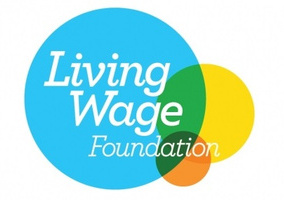This year, Charity Finance Week takes place during a remarkable time for the UK economy.
There have been a series of major events such as (and in no particular order) the impact of Covid-19 pandemic, supply chain issues, the impact of the war in Ukraine and the dust still hasn’t settled on Brexit yet.
All of these events have contributed, to a greater or lesser extent, to inflation running at a 40-year high.
As costs soared over the summer, there was inaction from the government as the Conservative party selected its new leader – and therefore the new prime minister.
Once Liz Truss had moved into Number 10 (and she had appointed Kwasi Kwarteng as her new neighbour at Number 11), the government did announce its plans to reduce energy bills.
Charities will be wondering if they will be classed as a vulnerable sector when the initial six-month package comes to an end, but the immediate impact of this move will be welcomed by those families and charities that were viewing their ever-increasing bills with fear.
However, the financial markets’ reaction to the new chancellor’s change in economic direction, including now reversed tax cuts for the highest earners, was not so welcome.
Following Kwarteng’s fiscal statement (or “the mini-budget”) last month, the pound plunged to a record low against the dollar.
If this decline is not reversed quickly, then it will add to the inflationary pressures and cost-of-living crisis.
Imported goods will cost more and this will lead to further increases in food prices. Also, the price of oil and gas is based on the dollar, adding to energy and petrol cost pressures.
It also led to a number of banks suspending new mortgages or going back on agreed deals.
All in all, an unprecedented time to be living through and working within charity finance.
Weathering the storm
Of course, the real question for charities is how will they weather the current economic storm – a question that is made all the more urgent as the sector has had little time to recover from the impact of the pandemic.
The pressures of inflation have some similarities with the pressures of the pandemic.
Firstly, there will again be increased demand for many services, as the vulnerable in society turn to the sector for vital assistance.
Secondly, fundraising will be difficult, not because of lockdown restrictions on events but because donors will see their disposable cash dwindle.
However, this time charities will also see their costs increasing and will be facing (completely understandable) demands from their staff for wage rises.
It appears that, even with government support for energy bills, times are going to be tough for charities for some time. So what can be done?
Writing in the October edition of Charity Finance, Ian McLintock suggests focusing on three areas: getting clarity on your financial position and sustainability planning, growing fundraising and controlling costs.
Whatever action any charity decides to take may well mean making difficult decisions and there will be no quick fix.
The sharing of ideas and information throughout the sector will be an important tool to help manage the stress of the situation and to help more charities survive and keep providing their services.
Charities are in this together and need to help each other – especially as it is not clear whether more government support will be forthcoming.
Related articles












